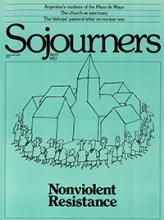A group of women in Argentina spend most of their time asking one question. They've done so for six years. They say, for them, there is no other question. They ask the government what it has done with their children. Are they alive or dead?
Read the Full Article

Already a subscriber? Login
